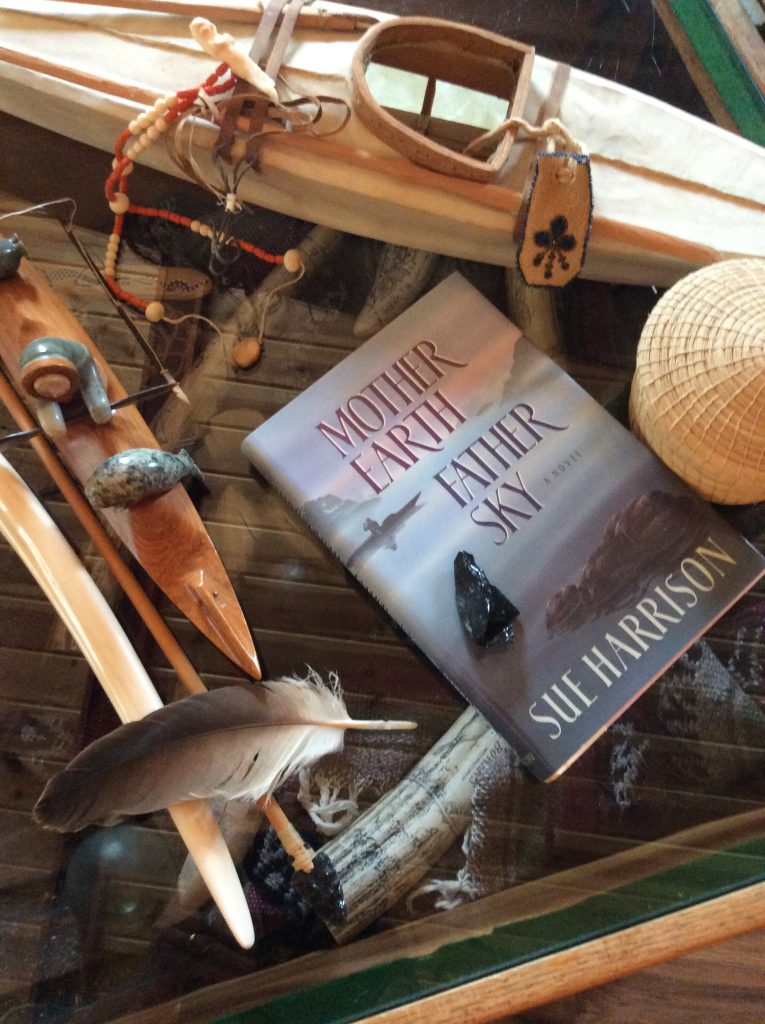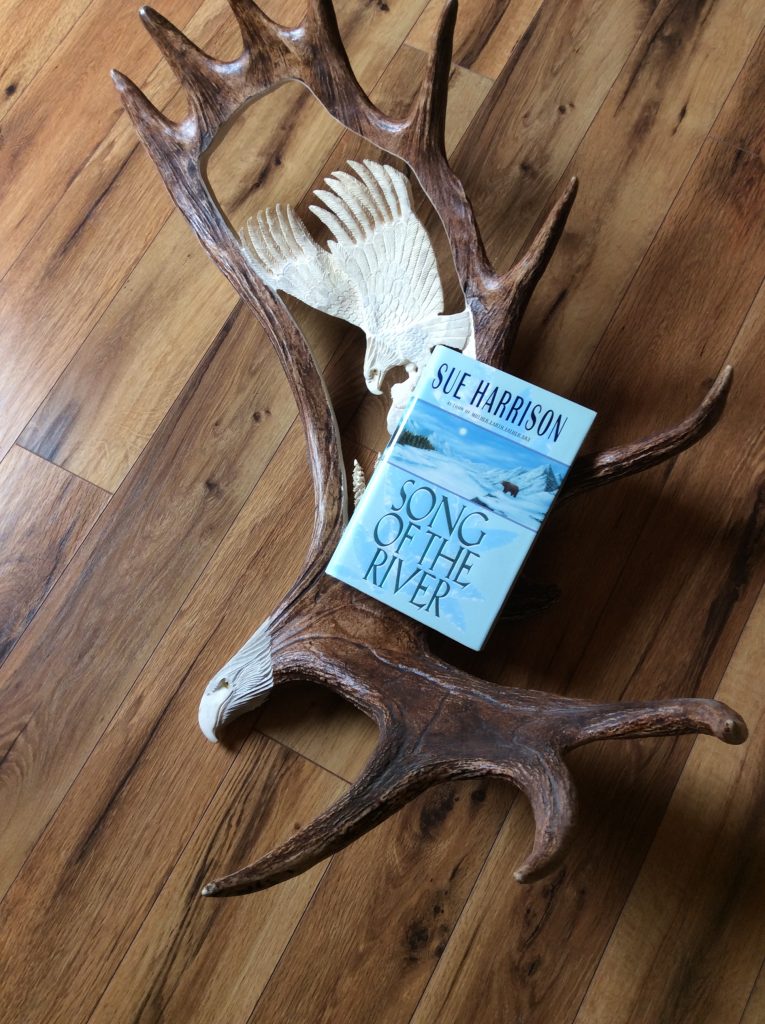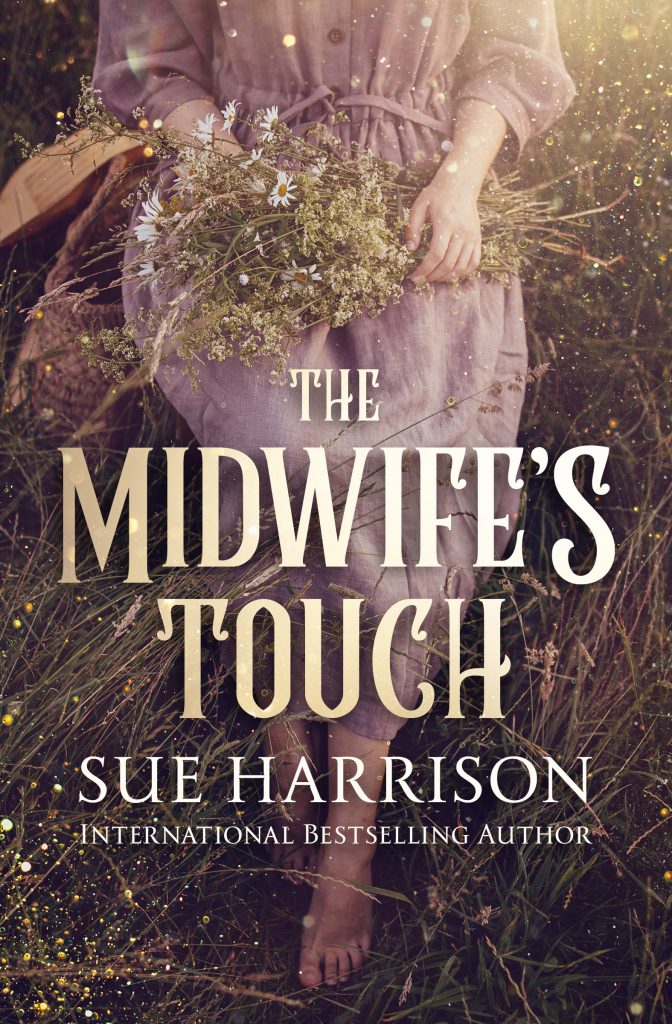Reading Group Questions
This page is still in progress. Thank you for your patience as we add questions for each of Sue’s novels.

Questions–Mother Earth Father Sky
- Did you enjoy the book? Why or why not?
- Although Chagak is the major protagonist in the novel, Shuganan is introduced first (in the prologue). Why do you think the author made this choice?
- The first few paragraphs of Chapter One tell the reader that a storm has swept the beaches bare. In the Aleutian Islands, most storms load the beaches with driftwood and other things that helped the ancient inhabitants survive. How does this storm foreshadow what happens in the remainder of the chapter?
- Has the forced isolation you’ve experienced during the Covid-19 pandemic given you a better perspective on Shuganan’s isolation? How do you think isolation affected his view of reality?
- In the last paragraph of the first chapter, Harrison repeats the phrase “to keep the waves from pulling her away.” Early linguists and Russian Orthodox priests who studied the Unangan (Aleut) language in the 1700s reported that the Aleut people seldom raised their voices to emphasize a point, but instead repeated what they had to say. Harrison uses this technique throughout the novel. Did her choice to do so help you better understand the culture or did you find it annoying?
- One of Harrison’s challenges as she began this novel was to bridge the geographical and cultural gaps between modern readers and the First Men and thus pull readers into the story. Do you think she succeeded?
- Why do you think it was important for Chagak to provide death rites for all her people?
- Have you ever suffered a loss of nearly incomparable proportions? If so, what motivated you not to give up? What motivates Chagak not to give up?
- How do Shuganan’s carvings play a part in the novel? Do you agree that works of art can take on a life of their own?
- Throughout the novel, the sea is one of Harrison’s strongest symbolic motifs. Discuss various ways the sea impacts the plot and the characters.
- The Unangan people speak an agglutinative language. (Words for more complex ideas and things are made by joining simple words into one longer word.) Discuss how this linguistic practice might affect the mindset in regard to relationships with the environment.
- What does the sea otter symbolize throughout the novel? How does her family’s traditional reverence for sea otters impact Chagak’s reaction to Man-Who-Kills’ slaughtering sea otters to pay her bride price?
- Guilt is one of the social themes throughout MOTHER EARTH FATHER SKY. What does Shuganan feel guilty about? How does guilt affect Chagak’s life? Kayugh’s?
- Native American storytelling is a theater art. In writing the novel, Harrison tried to highlight various Native storytelling techniques, including the use of a strong auditory rhythm through choice of words and phrasing. Did the rhythm pull you into the story or was it a distraction?
- Who was your favorite of Kayugh’s people? Why do you think Chagak had difficulty welcoming them into her life with Shuganan?
- In Native cultures, names are considered sacred. Throughout a lifetime, men and women might choose to rename themselves according to accomplishments or traumatic events. What name would you choose for yourself at this point in your life?
- Were you satisfied with the ending?

Questions–Song Of The River
- Did you enjoy the book? Why or why not?
- What are some of the underlying factors in K’os’s gradual change from a self-centered young woman to a very evil person?
- In writing her novels, Harrison has followed many traditions of Native story-telling. One of these traditions is that “good people” are extraordinarily good and villains are extremely evil. Discuss the difference in that world view as compared to one of the current trends in 21st century literature in which the protagonist is often motivated by as much greed and self-interest as the antagonist. (For example Gone Girl by Gillian Flynn)
- Sue Harrison has three brothers. Her middle brother is a polio survivor and has difficulty walking; however, he is a very determined and goal-oriented person. How might that family history have influenced Harrison’s choices concerning her main character Chakliux?
- Storytelling as a Native American art form is an oral tradition dependent on theater art. Can you imagine Chakliux’s story as a play or movie? Was the novel visual to you, or do you relate to it more as words and ideas?
- Aqamdax and Chakliux have very different responses to the stresses in their lives. Aqamdax becomes a rebel, and Chakliux becomes deeply spiritual. Which response do you identify with most? What are some of the problems each character faces because of his/her choices?
- Why do you think Aqamdax and Chakliux are attracted to one another when they are so different? What are some of their similarities?
- A well-known traditional Native character is the trickster. The trickster, who is often portrayed as an amoral being, has taken various forms as a raven, wolf, and human being among others. Sok’s name means Raven Call. Do you see some amorality in his choices? (Amoral–neither good nor bad but self-serving)
- Are you a dog lover? What do you think of Biter? Why do you think his name is appropriate? (Or not?)
- How do Ghaden’s mother’s death and the attack on Ghaden impact his life? Do you believe he becomes more mature as a result of these tragedies in his life?
- Compare modern towns or cities to the Near River and Cousin River villages. What do you believe to be the primary differences?
- Would you like to live in the same time period as Chakliux and Aqamdax?
- Recent sociological research into current isolated South Seas cultures have highlighted the prime importance of storytellers in primitive societies. We see similar situations in Song of the River. Why do you think storytellers are so important in these cultures? How many venues can you name in today’s society that make use of the storyteller’s art in some way?
- As you may surmise after reading this novel, riddles were an important part of the proto-Athabascan cultures. Why do you think that might be? Do you like riddles or do they frustrate you?
- Were you surprised to discover the identity of the killer or had you already suspected the one who was the culprit? How about the one who was killing the dogs?
- Sue Harrison is a Christian. How do you think her faith may have helped her write this novel? How might it have made writing the book more difficult?
- Were you satisfied with the ending?

Questions-The Midwife’s Touch
- Did you enjoy the novel? Why or why not?
- Author Sue Harrison has written, “Metaphors are a novelist’s playground.” She claims The Midwife’s Touch in whole stands as a metaphor for a woman’s need to nurture and care for others. Do you agree? Why or why not?
- Did you suspect what was happening when Parnell Creed found the jugs of moonshine on the porch? Discuss the possible differences in China’s life if Parnell had lived through her childhood.
- Did you like China as a child? Discuss the relationship that she had with her mother. Did the song/poem Yvette sang to China help you decipher the limits of China’s wish-granting abilities?
- When did you realize that China was granting wishes by touching people? Why do you think Yvette tried to hide China’s abilities from everyone, including China herself?
- Were you surprised when you realized that China’s wish-granting was really thievery? Do you think China’s mother adequately addressed this moral issue in China’s life?
- The Destrehans of the novel are based on various real families that lived in Louisiana during the 1800s. Why did the Destrehans reject Angèle as a daughter-in-law? Do you think the young Yvette fully understood the ruthless capabilities of her grandfather Henri?
- Discuss the impact of Miz Settle’s influence on China as a child and later as a midwife. Did the information in the novel about childbirth, herbal medicines, and traditional Ozark hexes enhance your reading experience? Why or why not?
- Goomer doctors were a real part of life in the Ozarks, as was the mix of superstition and conservative Christian beliefs. Did you understand the ideas of “opposites” and “likes” as used in Goomering and charms? Do you believe people still wear or believe in charms today?
- Discuss the relationship between Tommy Belnap and China Creed. How do you think his death impacted China’s life? Do you think she would have been less or more open to a courtship with Dr. Grey if she had never loved and lost Tommy Belnap?
- In the novel, the Civil War is presented as fact without much digression into additional background information. Would you have liked a broader picture or did you appreciate the more intimate personal presentation that Harrison uses? How would you have reacted to the Jayhawkers and Bushwackers if they attacked your home?
- Why did Yvette decide to have an affair with Mr. James? How did you feel about Mrs. James’s decision to ignore her husband’s infidelity and accept Yvette’s baby as her own?
- By smashing her spinning wheel during the Trail of Tears, Jesse Settle illustrated her rejection of “white” traditions, yet, contrary to Cherokee practice, she decided to become a midwife. How do you reconcile that contradiction in her choices? Discuss her mixed racial heritage and the guilt she felt about her darker skin color.
- Did you catch the connection between Miz Settle’s broken spinning wheel and the broken Spode plate in Chapter One? How does brokenness shape China’s and Miz Settle’s lives?
- Discuss your feelings about Stephen Grey. When did you first suspect that he was addicted to opiates?
- Did you like Mr. Cooper? Why do you think he was so loyal to the Grey family and Stephen in particular? Were you surprised by his declaration of love to China in Chapter Thirty Five?
- Did you enjoy your “visit” to the New York City of the Gilded Age? Did the opulence of society families surprise you? Would you have enjoyed living during that era as part of a wealthy New York family?
- Discuss the fear experienced by the Grey family in 1873 when the market crashed and banks became insolvent. Did you grow up with any family stories about the “Great Depression,” which began in 1929?
- How did you feel about the portrayal of slavery in the novel? Do you think slavery exists in other forms besides ownership and enforced labor?
- During a moment of despair, China asks, “Is there nothing in this world stronger than greed?” Did the outcome revealed in the Epilogue answer China’s question to your satisfaction? Do you believe love can be stronger than greed?